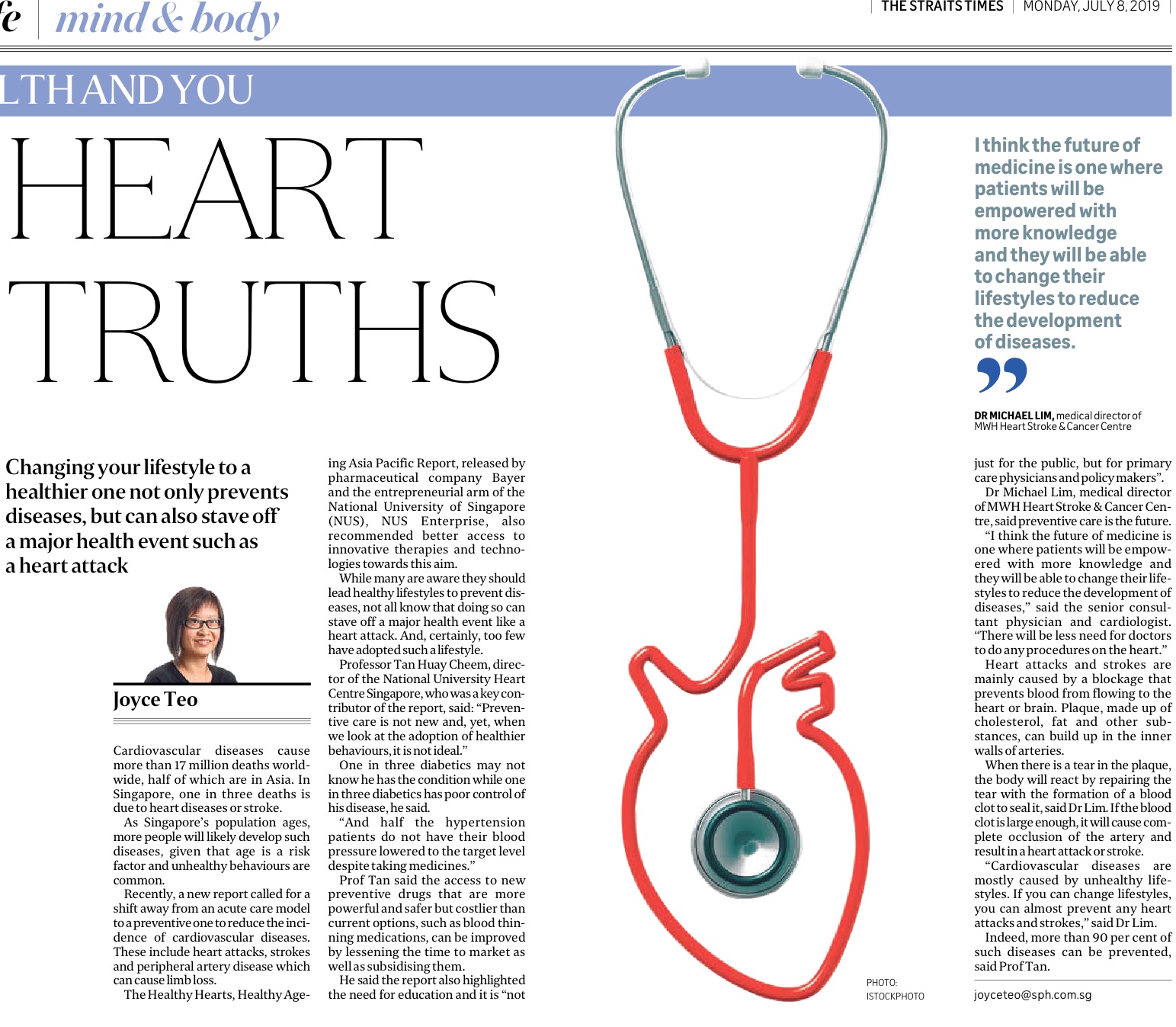HEART TRUTHS
Changing your lifestyle to a healtl1ier one not only prevents diseases, but can also stave off a major health event such as a heart attack.
Cardiovascular diseases cause more than 17 million deaths worldwide, half of which are in Asia. In Singapore, one in three deaths is due to heart diseases or stroke.
As Singapore’s population ages, more people will likely develop such diseases, given that age is a risk factor and unhealthy behaviours are common.
Recently, a new report called for a shift away from an acute care model to a preventive one to reduce the incidence of cardiovascular diseases. These include heart attacks, strokes and peripheral artery disease which can cause limb loss.
The Healthy Hearts, Healthy Ageing Asia Pacific Report, released by pharmaceutical company Bayer and the entrepreneurial arm of the National University of Singapore (NUS), NUS Enterprise, also recommended better access to innovative therapies and technologies towards this aim.
While many are aware they should lead healthy lifestyles to prevent diseases, not all know that doing so can stave off a major health event like a heart attack. And, certainly, too few have adopted such a lifestyle.
Professor Tan Huay Cheem, director of the National University Heart Centre Singapore, who was a key contributor of the report, said: “Preventive care is not new and, yet, when we look at the adoption of healthier behaviours, it is not ideal.”
One in three diabetics may not know he has the condition while one in three diabetics has poor control of his disease, he said.
“And half the hypertension patients do not have their blood pressure lowered to the target level despite taking medicines.”
Prof Tan said the access to new preventive drugs that are more powerful and safer but costlier than current options, such as blood thinning medications, can be improved by lessening the time to market as well as subsidising them.
He said the report also highlighted the need for education and it is “not just for the public, but for primary care physicians and policymakers”.
Dr Michael Lim, medical director of MWH Heart Stroke & Cancer Centre, said preventive care is the future.
“I think the future of medicine is one where patients will be empowered with more knowledge and they will be able to change their lifestyles to reduce the development of diseases,” said the senior consultant physician and cardiologist.
“There will be less need for doctors to do any procedures on the heart.”
Heart attacks and strokes are mainly caused by a blockage that prevents blood from flowing to the heart or brain. Plaque, made up of cholesterol, fat and other substances, can build up in the inner walls of arteries.
When there is a tear in the plaque, the body will react by repairing the tear with the formation of a blood clot to seal it, said Dr Lim. If the blood clot is large enough, it will cause complete occlusion of the artery and result in a heart attack or stroke.
“Cardiovascular diseases are mostly caused by unhealthy lifestyles. If you can change lifestyles, you can almost prevent any heart attacks and strokes,” said Dr Lim.
Indeed, more than 90 per cent of such diseases can be prevented, said Prof Tan.
Straits Times Life
Mind your Body
8 July 2019
by Joyce Teo
